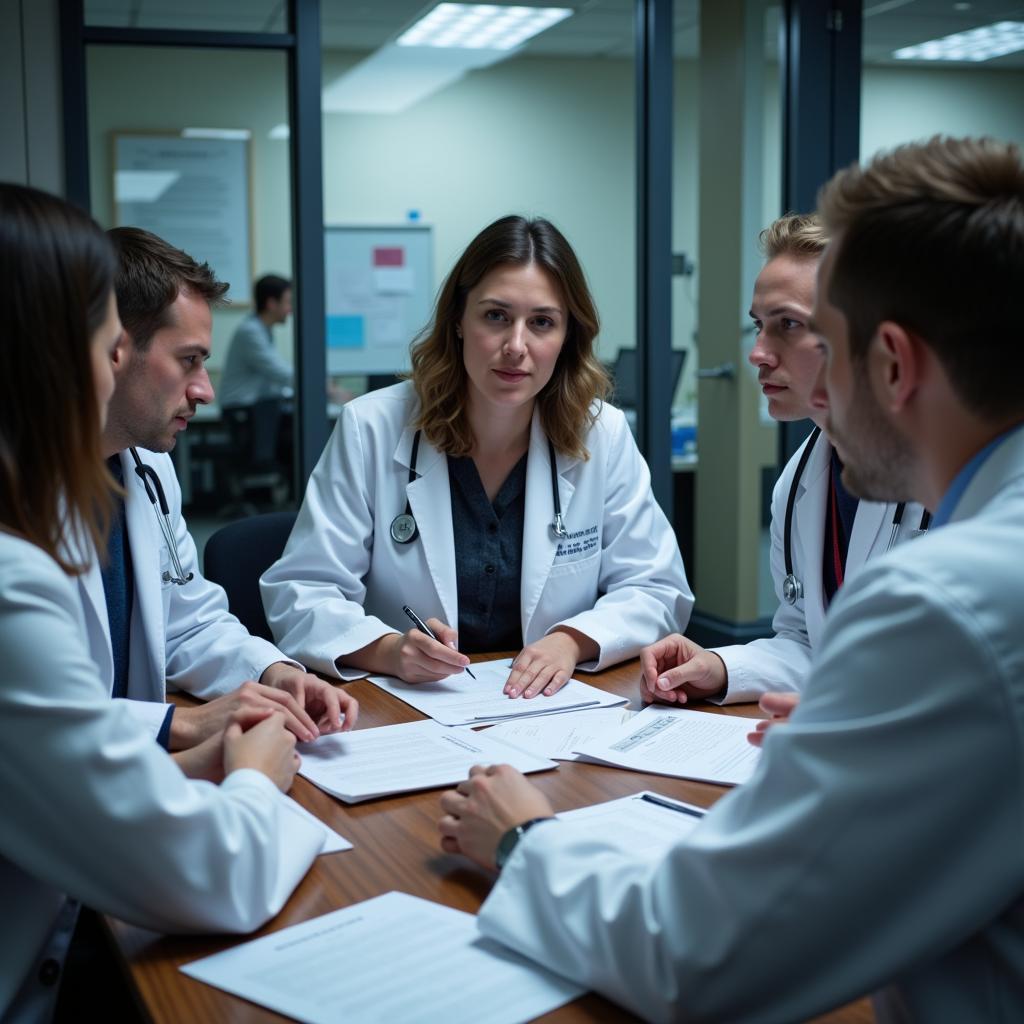Medical Research Groups are typically associated with scientific exploration and the advancement of healthcare. However, what happens when this rigorous methodology is applied to the realm of the paranormal? This article delves into the fascinating intersection of medical research and paranormal investigation, exploring how a scientific approach can be used to shed light on unexplained phenomena.
Can a Medical Research Group Validate Paranormal Experiences?
The pursuit of understanding paranormal phenomena has often been relegated to the fringes of scientific inquiry. However, the application of medical research methodologies offers a promising avenue for rigorous investigation. A medical research group, with its expertise in data collection, analysis, and controlled experimentation, can bring a much-needed level of objectivity to the field. By employing established scientific protocols, a medical researcher surveyed a large group experiencing alleged paranormal activity and gathered valuable data.
Investigating Claims with Scientific Rigor
One of the key strengths of a medical research group lies in its ability to systematically investigate paranormal claims. This involves careful documentation of experiences, meticulous data collection, and the use of control groups to rule out alternative explanations. For instance, a team could investigate reported hauntings by measuring electromagnetic fields, temperature fluctuations, and infrasound levels. By comparing these readings with data from control locations, researchers can determine whether any observed anomalies are genuinely paranormal or attributable to natural phenomena.
Imagine a team investigating claims of poltergeist activity. They might install motion sensors, video cameras, and audio recorders to capture any unusual occurrences. Simultaneously, they would monitor environmental factors such as air pressure and vibrations to eliminate mundane explanations. This approach allows for objective analysis and helps to distinguish between genuine paranormal events and misinterpretations of sensory input.
The Role of Psychology in Paranormal Research
Psychological factors play a crucial role in understanding reported paranormal experiences. A medical research group can incorporate psychological assessments into their investigations to determine the influence of suggestibility, perceptual biases, and pre-existing beliefs. Research on bipolar disorder and other psychological conditions has helped researchers understand how altered states of consciousness might influence perceptions of paranormal phenomena.
“Understanding the psychological underpinnings of paranormal experiences is essential for a comprehensive investigation,” explains Dr. Amelia Hayes, a renowned neuropsychologist specializing in anomalous perception. “Factors such as sleep deprivation, stress, and prior expectations can significantly impact an individual’s interpretation of sensory information.”
The Challenges and Ethical Considerations
While a medical research group can bring significant value to paranormal investigation, several challenges and ethical considerations must be addressed. One primary concern is the difficulty in replicating paranormal phenomena under controlled conditions. Unlike traditional scientific experiments, paranormal events often appear spontaneously and unpredictably. This inherent unpredictability makes it challenging to design rigorous experiments that meet the standards of traditional scientific inquiry.
Another challenge lies in the subjective nature of many paranormal experiences. Individual perceptions and interpretations can vary significantly, making it difficult to establish objective measures and draw definitive conclusions. Sf research institute and other similar organizations are working to develop standardized protocols for paranormal investigations. These protocols aim to improve the reliability and validity of data collected in this complex field.
 Ethical Considerations in Paranormal Research
Ethical Considerations in Paranormal Research
“Maintaining ethical standards is paramount when conducting paranormal research,” emphasizes Dr. David Chen, a bioethicist specializing in emerging fields of scientific inquiry. “Respecting the privacy and well-being of individuals involved in these investigations is crucial. It’s important to avoid sensationalizing findings or exploiting vulnerable individuals who may be seeking explanations for unusual experiences.”
Conclusion: Bridging the Gap Between Science and the Unexplained
The application of medical research methodologies offers a promising pathway towards a more rigorous and objective understanding of paranormal phenomena. By leveraging the expertise of medical research groups, we can begin to bridge the gap between science and the unexplained. Future research in this area holds the potential to unlock deeper insights into the nature of consciousness, perception, and the boundaries of human experience. Further studies involving medical research groups may eventually unveil the truth behind these intriguing mysteries.
FAQ
- Can medical research truly explain paranormal events?
- What are the limitations of applying scientific methods to the paranormal?
- How can psychological factors influence the perception of paranormal phenomena?
- What ethical considerations should be addressed in Paranormal Research?
- What are some examples of scientific equipment used in paranormal investigations?
- How can medical research groups contribute to a better understanding of consciousness?
- What are some future directions for research at the intersection of medicine and the paranormal?
Common Scenarios and Questions
People often ask questions like, “I saw a ghostly figure; is it a hallucination?” or “I heard unexplained noises in my house; what could it be?” These are common scenarios that a medical research group could investigate. Basavatarakam indo-american cancer hospital and research institute shows how detailed medical research is conducted. Similarly, citi training biomedical research highlights the importance of rigorous training for researchers.
Further Exploration
For more information, explore related articles on this website or contact us directly.
Need Help?
Contact us 24/7 for support. Phone: 0904826292, Email: research@gmail.com. Visit us at No. 31, Alley 142/7, P. Phú Viên, Bồ Đề, Long Biên, Hà Nội, Việt Nam.